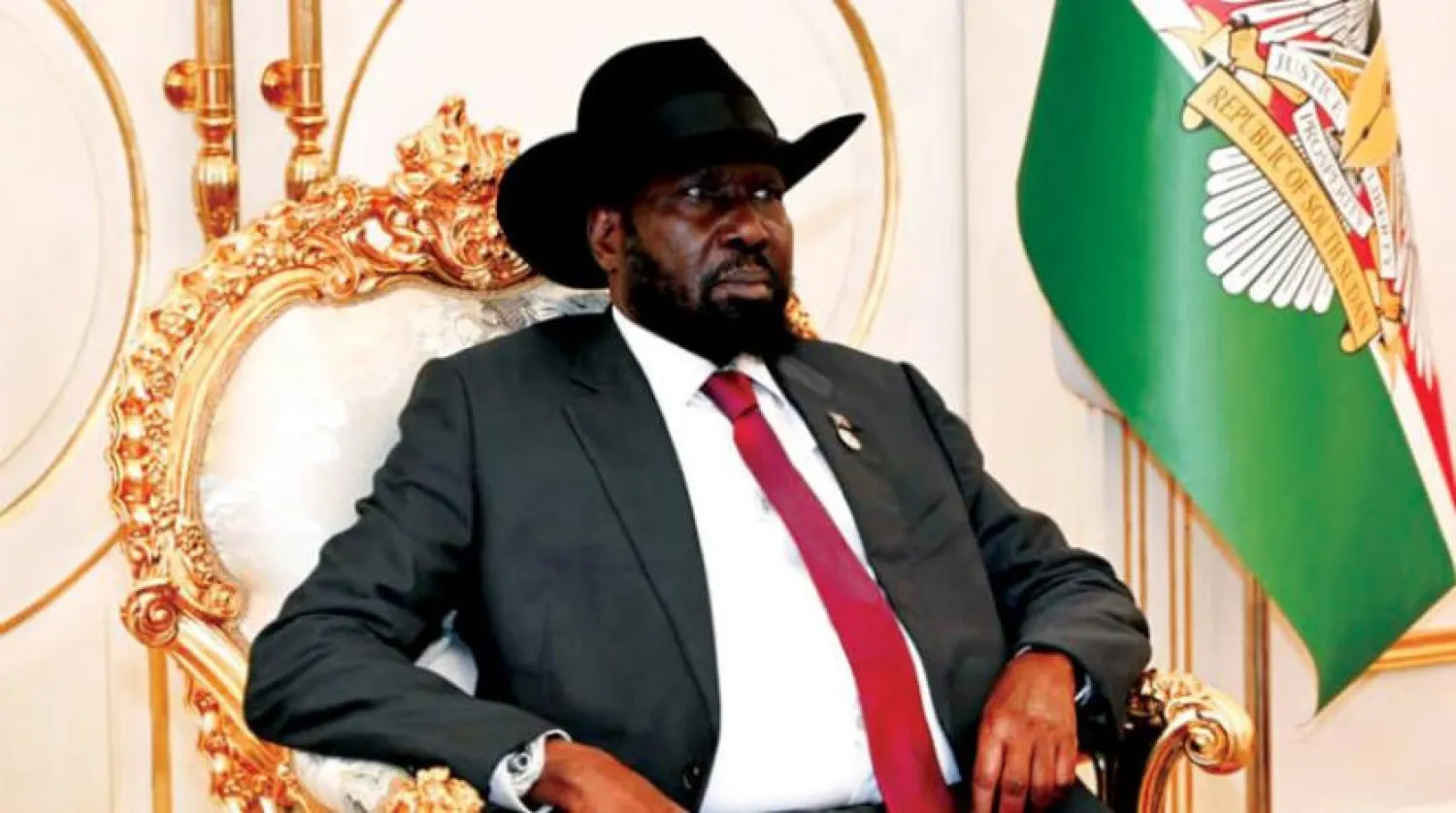The Juba Agreement for Peace in Sudan, also known as the Juba Agreement, has succeeded in stopping the war, stressed South Sudan President Salva Kiir Mayardit in a phone interview with Asharq Al-Awsat. He added that the peace treaty had achieved its goals.
“We completely disagree with those who believe the Juba Agreement did not achieve its objectives. The purpose of signing peace agreements is to stop the war, address the causes of conflict, and work on re-development,” said Kiir.
After congratulating the Sudanese people on the second anniversary of the signing of the Juba Agreement, Kiir defended the deal’s success and urged the parties who did not sign the deal, including the Sudan People’s Liberation Army (SPLA-North) and the Sudan Liberation Movement, to join it.
“Allow me to seize the opportunity of this interview with Asharq Al-Awsat to invite the parties that did not sign the agreement, including the movements led by Abdelaziz Adam Al-Hilu and Abdul Wahid al-Nur, to negotiate with the Sudanese transitional government until the peace file is completed and they join the treaty,” said Kiir.
Although he asserted that the war has stopped since the signing of the Juba Agreement with the transitional government, he noted that the deal still faces funding challenges.
“I can tell you that the peace agreement faces a single challenge represented in the absence of sufficient funding to implement some of its articles, especially the security arrangements in Darfur and the two areas (Nuba Mountains and the Blue Nile),” remarked the president.
“Therefore, we call on the international and regional community to support Sudan so that it can implement the peace agreement and achieve development that will help in the return of the displaced and refugees,” he added.
“What concerns us now is to continue implementing the peace agreement because its implementation will contribute to enhancing social, political, and economic security,” explained Kiir.
The South Sudan leader revealed that his country was serious about including parties that did not sign the Juba Agreement.
“The agreement has achieved an essential thing for our country, which is to stop the war and internal fighting among the people, despite the presence of some groups which did not sign this pact.”
“We are working seriously to include those groups in peace efforts through negotiations held in Rome,” stressed Kiir.
“A broad-based government of all factions and different political forces at all levels was formed to implement this agreement,” added Kiir, recalling that South Sudan has proceeded to unify forces under a joint military doctrine.
“We will work to collect weapons from the hands of citizens to avoid clan fighting,” he further clarified.
Kiir, who signed an extension for South Sudan’s transition period, said the extension would allow for the unification of the armed forces, the drafting of a new constitution, and time to prepare for elections to avoid a return to war.
“The transitional period was extended to create the appropriate climate for holding elections,” he told Asharq Al-Awsat.
“The government will provide the appropriate conditions for holding the elections by amending the necessary laws,” he said, listing the Political Parties Law and the Elections Law as examples of regulations needing revision.
Moreover, he revealed that authorities in South Sudan would hold a population census in preparation for elections after the transitional period.
“We will conduct a comprehensive population census in the country and use the data to determine the geographical constituencies and electoral districts, as well as return the displaced and refugees to their areas of origin voluntarily to ensure their participation in elections.”
On another note, Kiir praised the development of South Sudan’s relations with Saudi Arabia.
He described the development of ties as a strategy that is “heading towards broader horizons for cooperation in various fields.”
Kiir also cited the signing of the cooperation protocol between Riyadh and Juba, which took place in Riyadh at the beginning of 2022. The protocol covers various fields, such as investment, education, health, diplomatic relations, and coordination and consultation on issues of common interest in international forums.
“Relations between Saudi Arabia and South Sudan are in continuous development,” Kiir said.
Welcoming the visit of Saudi Foreign Minister Prince Faisal bin Farhan to Juba, he stressed that the Kingdom of Saudi Arabia and South Sudan share many areas that allow cooperation.
The president noted that his country has promising investment opportunities, especially in the oil, gas, mining, agriculture, tourism, and other sectors and it was looking forward to benefiting from the Kingdom’s experience.
“In the oil and gas field, Saudi companies have a great experience that we desperately need,” Kiir remarked.
“Through Asharq al-Awsat, I would like to invite Saudi investors to visit South Sudan to learn about the opportunities found in various fields,” he added.
When asked about cooperation plans between the Kingdom and South Sudan, he explained that efforts are being exerted to realize collaboration projects.
“After signing the cooperation protocol between the two countries, we are now striving to realize projects on the ground, and some important matters will be discussed during the upcoming visit of Saudi Foreign Minister Prince Faisal bin Farhan to South Sudan.”
Kiir revealed that after Prince Faisal’s visit, officials from both countries will hold follow-up meetings to address what has been agreed upon.
“Cooperation between Juba and Riyadh will benefit the countries around us as well,” he stated.
Kiir’s interview with Asharq Al-Awsat is his first with an Arab newspaper since he took over the leadership of South Sudan and as the first head of state following the referendum that took place on July 9, 2011, which resulted in the independence of South Sudan from the Republic of Sudan.










